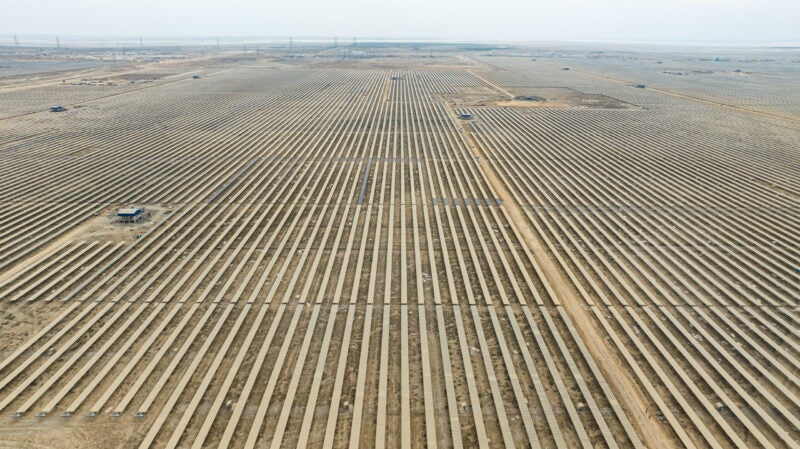
Adani Green Energy Limited (AGEL), the renewable energy platform of Adani Group portfolio, has started operations of the first 551MW solar capacity at the Khavda renewable energy park in the Indian state of Gujarat.
Located in the Kutch district, the Khavda renewable energy park will possess a clean energy capacity of 30GW. It is claimed to be the largest renewable energy installation in the world.
Once completed, the Indian renewable energy park is expected to generate approximately 81 billion units of electricity per year to supply power to 16.1 million households.
Besides, the Khavda facility will eliminate 58 million tonnes of carbon dioxide emissions each year.
AGEL plans to operationalise the Khavda renewable energy park in the next five years.
According to the Indian renewable energy company, it has fed the first power from the Khavda solar facility to the national grid within one year of starting work on the clean energy park.
AGEL also intends to deploy India`s largest onshore wind turbine generator of 5.2MW capacity, bifacial solar photovoltaic (PV) modules, and horizontal single-axis tracker systems at the Khavda park.
The company will also be utilising its Energy Network Operation Centre (ENOC) platform with artificial intelligence (AI)/ machine learning integration to allow real-time automated monitoring.
Adani Group chairman Gautam Adani said: “Through bold and innovative projects like the Khavda RE plant, AGEL continues to set higher global benchmarks and rewrite the world`s planning and execution standards for giga-scale renewable energy projects.
“This milestone is a validation of the Adani Group`s commitment and leading role in accelerating India`s equitable clean energy transition journey towards its ambitious goals of 500GW of renewable energy capacity by 2030 and carbon neutrality.”




